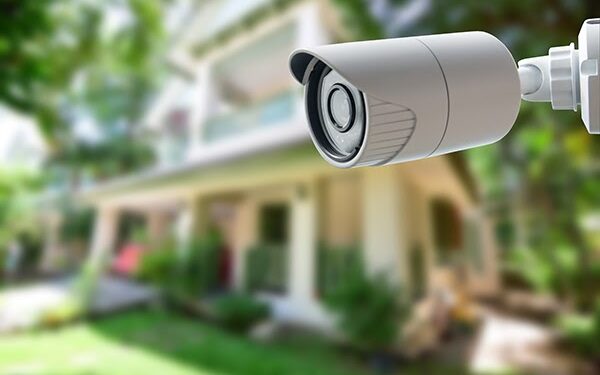CCTV is an essential tool in crime prevention and detection. However, people may be concerned about the privacy issues involved.
It can help law enforcement officials identify suspects and catch them on tape. They can also use the footage to look for clues that might lead them to a suspect.
Deterrence
Deterrence is one of the most critical aspects of surveillance technology. People are less likely to commit crimes if they know that the area is under surveillance, as they fear punishment if caught and will not risk getting caught by being seen doing something criminal. This is why public cameras are so effective – the Boston Marathon bombings were solved within hours after investigators sifted through surveillance footage to identify the suspects.
However, some people are still concerned that surveillance cameras invade privacy. However, it is essential to note that these cameras are there to keep you and others safe and do not track or monitor your every move. Having cameras on your business premises can also deter crime. Installing home security cameras can help you identify if someone is trying to steal or damage your property and will give law enforcement officers the evidence they need to catch them.
While CCTV has tremendous deterrence capabilities, it can be challenging to balance that against the potential for abuse and overuse of the technology. It is, therefore, essential to document and publicize policies on how surveillance cameras can be used and the disciplinary consequences of misuse. This will help to reassure the public and encourage support for focused deterrence strategies. Ultimately, the best way to ensure the most effective use of CCTV is to hire an expert security consultant and implement a comprehensive system.
Monitoring
The main reason to have surveillance cameras is to monitor the area and detect suspicious behavior. Cameras can also assist in identifying criminals by recording their actions. Police can easily use these videos to catch them, even years after committing the crime. This is especially helpful when the suspect has escaped justice due to insufficient evidence.
CCTV can help prevent crimes by making people feel safe in public places. The mere presence of a surveillance camera puts off criminals who would otherwise harm people or steal their belongings. Furthermore, CCTV can be used to track fugitives’ whereabouts through stakeouts. This is the covert surveillance of a person or place done with other agencies.
Surveillance cameras are often deployed in public spaces like shopping malls and parking lots to monitor activities. They can be equipped with a wide range of lenses, such as fish eye and spherical cameras, offering a panoramic view of an entire location. They can also be linked to facial recognition software to identify and flag suspicious activity automatically.
The security industry must ensure that only systems compliant with data protection laws are installed and operated in public spaces. The Information Commissioner and Surveillance Camera Commissioner are in charge of ensuring this happens, and with the growth of analytical software, facial recognition, drones, and body-worn cameras, these experts must remain up to date to ensure that surveillance technology can be effective in combating crime.
Identification
A security camera can be used to identify a suspect, and CCTV systems are a vital tool for helping to solve crimes. This is especially important for crimes like burglary, as it can be challenging to steal something if you know you’re being recorded. CCTV can also help prevent other types of crime, such as vandalism or graffiti, as the person will be caught on camera and may be recognized.
However, CCTV isn’t always able to identify suspects as it is often difficult to capture clear images and can be subject to lighting conditions. For example, if the front of a store is flooded with sunlight, this can confuse the camera and make it harder to see a face or even read a license plate. A professional camera is likelier to have better technology to deal with these issues.
Businesses that use CCTV should inform employees and members of the public that it is in place and only keep footage for as long as necessary. They should also document their policies on how they will be used and have disciplinary consequences for system misuse. This is particularly important now that GDPR has come into force, and companies must be clear about the data they collect on people. In some cases, they cannot rely on the ‘domestic purposes’ exemption from the Data Protection Act and must register with the Information Commissioner’s Office (ICO). This will mean that people have a right to request access to footage of them.
Reporting
For criminal investigators, CCTV can help answer a crime’s ‘who’ and ‘where’ questions. This is because CCTV can capture a scene and even capture the perpetrators of the crime. CCTV can also help solve crimes, though there is less evidence. Unlike consumer-grade cameras, such as nanny cams, surveillance cameras are designed to be used for extended periods and in various conditions. For example, a camera that is pointed at the front door of a store is likely to see sunlight shining through the window and flooding its sensor. Consumer-grade cameras might not be able to deal with this, though surveillance cameras can automatically adjust to the lighting and provide a clear picture.
While there is limited research on CCTV’s value in the investigation, the available evidence suggests that cameras are valuable crime prevention and detection tools. Some studies suggest that CCTV has reduced crime rates slightly, while others have found that cameras are effective deterrents. Some studies have even found that burglars avoid areas with CCTV, and several reports have found that robberies in London reduced after the city installed CCTV cameras. However, some of these reports were of dubious quality and did not control for confounding variables or different types of crime.
Read more interesting articles on Tech new master


















